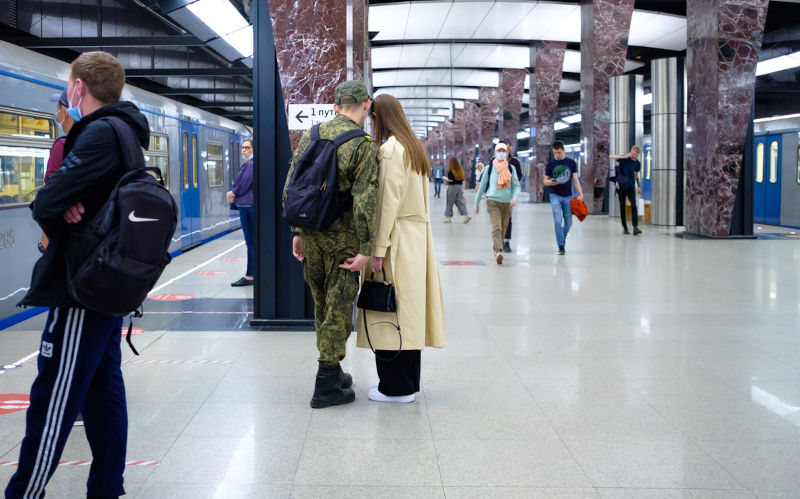What do ordinary Russians think about the war in Ukraine? Do they think it was a bad idea from the start? How eager are they for it to end, and on what terms? Accurate information on these vital questions is submerged in a great swamp of propaganda and partisan reporting.
I believe the Ukraine war media coverage is worse than in any other war I have witnessed because, for Europeans, fighting is closer to home and emotions are more fully engaged. Demonisation of Russia is total, which may be deserved, but is not a good approach for finding out what is really happening.
There is a strong public appetite for any news suggesting that the Russians are fed up the war and want to throw in the towel. The British Ministry of Defence said recently that an independent media outlet claiming access to polling by the Federal Protective Service showed that 55 per cent of Russians favour peace talks with Ukraine and only 25 per cent favour continuing the war. Maybe so, but one needs to know a good deal more about the poll to take it at face value.
Another secret Russian state poll is far more nuanced and sounds authentic. Published in the newsletter Faridaily by Farida Rustamova and Maxim Tovkaylo, who obtained a confidential poll conducted by the Kremlin-controlled polling service Respondents, it surveyed 900 people every week by phone. The pollsters asked them three questions: should the war have been started in the first place? Is it going to plan? And should it be continued?
Answers to the first question show that fewer and fewer Russians believe that it was a good idea to start the Special Military Operation on 24 February. They are still in the majority with 60 per cent saying that Russia needed to do so, but this figure is down 10 per cent in six months. Age is important: among 18 to 45 year olds, who made up a quarter of the sample and get their information largely from the social media, the proportion approving the start of the conflict drops to 40 per cent compared to 76 per cent for those over 45 years. Many say they are unsure, which may mean that they are frightened that giving a negative answer will get them into trouble.
Doubts about starting the war do not necessarily mean that Russians want to end it unconditionally at a time when it is going badly for them. Just 22 per cent think it is going according to plan and 42 per cent think it is not. But this does not translate into opposition to the war according to the newsletter:
“Paradoxically, despite more and more people believing the war should never have been started, the share of those who support a continuation of the war has been growing. As of 17 November, 67 per cent supported continuing the fight. And only 18 per cent of respondents would like the authorities to end the war — the lowest number in six months.”
In other words, Russians do not much like the war but do not want to be defeated. It sounds like the recipe for a lengthy conflict.
First published in COUNTERPUNCH DECEMBER 12, 2022
Patrick Cockburn is a journalist who has been a Middle East correspondent for the Financial Times since 1979 and, from 1990, The Independent.[1] He has also worked as a correspondent in Moscow and Washington and is a frequent contributor to the London Review of Books.
He has written three books on Iraq’s recent history. He won the Martha Gellhorn Prize in 2005, the James Cameron Prize in 2006, the Orwell Prize for Journalism in 2009,[2] Foreign Commentator of the Year (Editorial Intelligence Comment Awards 2013), Foreign Affairs Journalist of the Year (British Journalism Awards 2014), Foreign Reporter of the Year (The Press Awards For 2014).
Patrick Cockburn is the author of The Rise of Islamic State: ISIS and the New Sunni Revolution.
Patrick Cockburn is the author of War in the Age of Trump (Verso).
